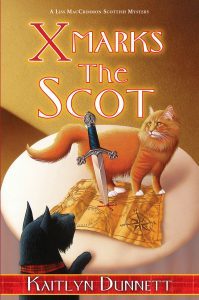Page Proofs—the final opportunity to change stuff
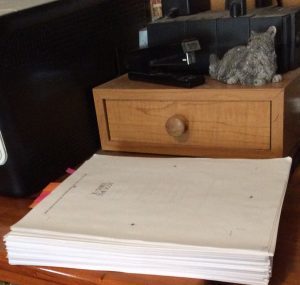 Several of us at Maine Crime Writers have been dealing with page proofs this month. What are page proofs, you ask? They are the pages of the book after they’ve been typeset. All revisions and copy edits have been incorporated, the latter after the author has had a chance to see them and reject those that are objectionable (although the final decision on this is up to the editor). This is the version that becomes what used to be called “bound galleys” and goes out to reviewers as an Advance Reading Copy or ARC.
Several of us at Maine Crime Writers have been dealing with page proofs this month. What are page proofs, you ask? They are the pages of the book after they’ve been typeset. All revisions and copy edits have been incorporated, the latter after the author has had a chance to see them and reject those that are objectionable (although the final decision on this is up to the editor). This is the version that becomes what used to be called “bound galleys” and goes out to reviewers as an Advance Reading Copy or ARC.
The page proofs I just sent back to Kensington are for what will be my fifty-seventh traditionally published book, X Marks the Scot, the eleventh Liss MacCrimmon Mystery. To check for typos and other errors, I did a very careful reading over the course of three days, catching a variety of small mistakes and several embarrassing continuity errors, and finding a number of places where I had to ask myself if I was sure I’d checked a detail when I was writing. If I wasn’t sure, this was my last chance to do so.
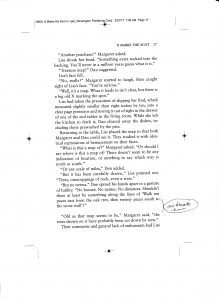 At this point, as the cover letter from the Production Editor clearly states, the author is “to make only those changes that are absolutely necessary” and warns that “text cannot be rewritten at this stage.” Ask for too much, and the publisher has the right to ignore you. This can be challenging, especially if you are picky about repetitious words. I don’t mean accidental repetitions, as on page 71 of this book, where the text read “nuked some water in in the microwave.” An example, one I did not ask to have corrected comes on page 105, where “another customer had come in.” in the second paragraph, and in the fifth paragraph, Liss “saw who had come in.” I did ask for a change on page 124, from “It’s certainly possible, but all we know for certain” to “It’s certainly possible, but all we know for sure”—picky? Yes, but if it bothers me, I’ll give you odds that it will bother some of my readers too.
At this point, as the cover letter from the Production Editor clearly states, the author is “to make only those changes that are absolutely necessary” and warns that “text cannot be rewritten at this stage.” Ask for too much, and the publisher has the right to ignore you. This can be challenging, especially if you are picky about repetitious words. I don’t mean accidental repetitions, as on page 71 of this book, where the text read “nuked some water in in the microwave.” An example, one I did not ask to have corrected comes on page 105, where “another customer had come in.” in the second paragraph, and in the fifth paragraph, Liss “saw who had come in.” I did ask for a change on page 124, from “It’s certainly possible, but all we know for certain” to “It’s certainly possible, but all we know for sure”—picky? Yes, but if it bothers me, I’ll give you odds that it will bother some of my readers too.
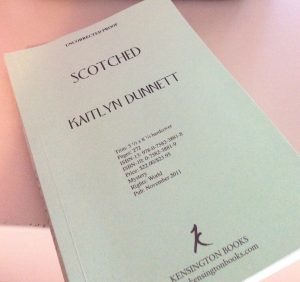
ARC of an earlier book in the series
Continuity is a bigger issue. Most errors were small, but they could have been mistaken for clues. A character likes coffee black in one scene and loaded up with cream and sugar in another. I called a motel the Sleepy Time in one scene and the Day Lily Inn in another. I had a character with a rental car in one scene and driving back home to Connecticut, clearly in his own vehicle, in another. Small stuff, you say, but readers notice. The really embarrassing error, though, was having a character enter a scene and announce that she had good news and bad news . . . and then only deliver good news.
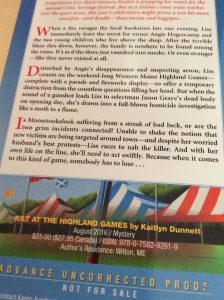
the back copy of another earlier book in the series
No doubt I still missed something. The author is the absolute worst person to proofread his or her own work. We know what we meant to write. Nine times out of ten, that’s what we see, even if it’s not what ended up on the page. Then, too, having read the darned thing so many times, it’s hard to work up a lot of interest in making one more pass. Why did it take me three days to read fewer than 300 pages? Because I knew what was going to happen next and my mind kept drifting off onto other things. I won’t come right out and admit that reading my own writing at this stage sometimes puts me to sleep, but a few times it was a close call and I had to take a break and come back to the page proofs at a later time.
The task complete, nineteen pages with corrections have now gone back to the Production Editor. What comes next? In a month or two I should receive a box of ARCs to use for things like Goodreads giveaways. In December, the hardcover, hopefully with all the corrections made, will be in stores. And a short time after that, inevitably, I will get an email from someone who has spotted an error that I missed.
Kathy Lynn Emerson/Kaitlyn Dunnett is the author of over fifty books written under several names. She won the Agatha Award for best mystery nonfiction of 2008 for How to Write Killer Historical Mysteries and was an Agatha Award finalist in 2015 in the best mystery short story category for “The Blessing Witch.” Currently she writes the contemporary Liss MacCrimmon Mysteries (Kilt at the Highland Games) as Kaitlyn and the historical Mistress Jaffrey Mysteries (Murder in a Cornish Alehouse) as Kathy. The latter series is a spin-off from her earlier “Face Down” series and is set in Elizabethan England. New in May 2017 is a collection of Kathy’s short stories, Different Times, Different Crimes. Her websites are www.KaitlynDunnett.com and www.KathyLynnEmerson.com

